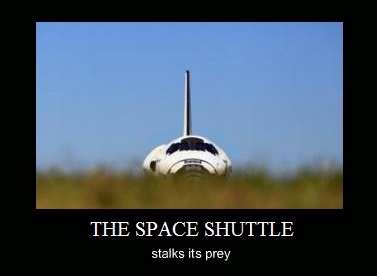Tuesday, May 1, 2018
The Future of NASA
With an unpredictable president, and an non-scientific NASA administrator now stunningly and inexplicably confirmed, many space enthusiasts and especially those in the aerospace industry are reasonably wondering, what will the future hold?
In years past, I have spent Decembers on space calendar giveaways, top missions of the year, and various awards, then created a post in January to discuss space goals, agency changes, and what the new year might bring. I simply had no idea how to continue that trend in 2017 and 2018. It's like we are all through the portal to the Upside-Down!
When I comment on how unconventional things suddenly became over the past year, a few Twitter users have accused me of "zeroing in" on Trump in a way that I "never did with Obama." Not true. I meticulously documented Obama's campaign promises for many years -- as evidenced by my past posts where I literally listed EVERY SINGLE ONE of President Barack Obama's space-related policies.
I just as meticulously documented results, and was never shy about listing his promises and researching them exhaustively, nor did I ever fail to mention when promises were stalled, compromised upon, or downright broken.
For the first time since I've begun writing about the nation's civil space policy, the administration itself changed into something so unexpected. Any change in command at the highest level could well mean significant changes to many portions of the space agency, not the least of which is a new leader for the agency itself.
The short list originally included GW Space Policy Institute Director Scott Pace, former astronaut Colonel Eileen Collins, and Oklahoma Representative Jim Bridenstine -- author of the(highly suspect) Space Renaissance Act. That the latter of the list and the very least of the candidates is now installed in an industry he groks only scantly, is jaw-dropping in the extreme. We can only surmise his appointment was based on meager understanding of what his job should actually be, and he shows little sign of being anything but a disaster in an already over-burdened bureaucracy.
Top priorities, as always, are listed as Moon, Mars, and Commercial Space. However, these tended to be the "sexy spotlights," when in fact NASA's $18-$20 billion is spread broadly among many major categories that contribute to successful industries both in space and across the globe.
Here are the major categories of the NASA budget. What will a Trump presidency mean to things like climate change research, Earth sciences, Green efforts, or even planetary science? We know many of these categories have been in the "pork" list for conservatives for many cycles. Will a budget for Moon or Mars glory mean gutting the long term plans for the habitability for our own planet? Such a turn of events seems unlikely.
We can likely count on many Senators in the 10 states with major NASA centers to fight for the jobs inside their borders, and the crucial work that fuels technology and spinoffs from space research; what we do not know is how well they will fare against blatantly partisan attempts to cater to myths that science is untrustworthy, or that science cares about elections, imaginary lines on maps, or whether Floridians just voted to imagine climate change does not exist when sea life is flooding into Miami parking garages.
For the moment, we only have sparse commentary from Donald Trump, and none so far show that he has a grasp of the actual issues facing the space agency. His mere mention of a "Space Force" violates the longstanding Treaty on Principles Governing the Activities of States in the Exploration and Use of Outer Space, Including the Moon and Other Celestial Bodies (United Nations, 1967).
So far most of the details have come from more knowledgeable policy advisers, and not Trump himself. Based on his own comments, comparing the promises of Trump to Obama is a stark contrast, indeed.
I won't try to predict what the future holds, I'll just hope the message from the first man in space holds true into the 21st century.






































































